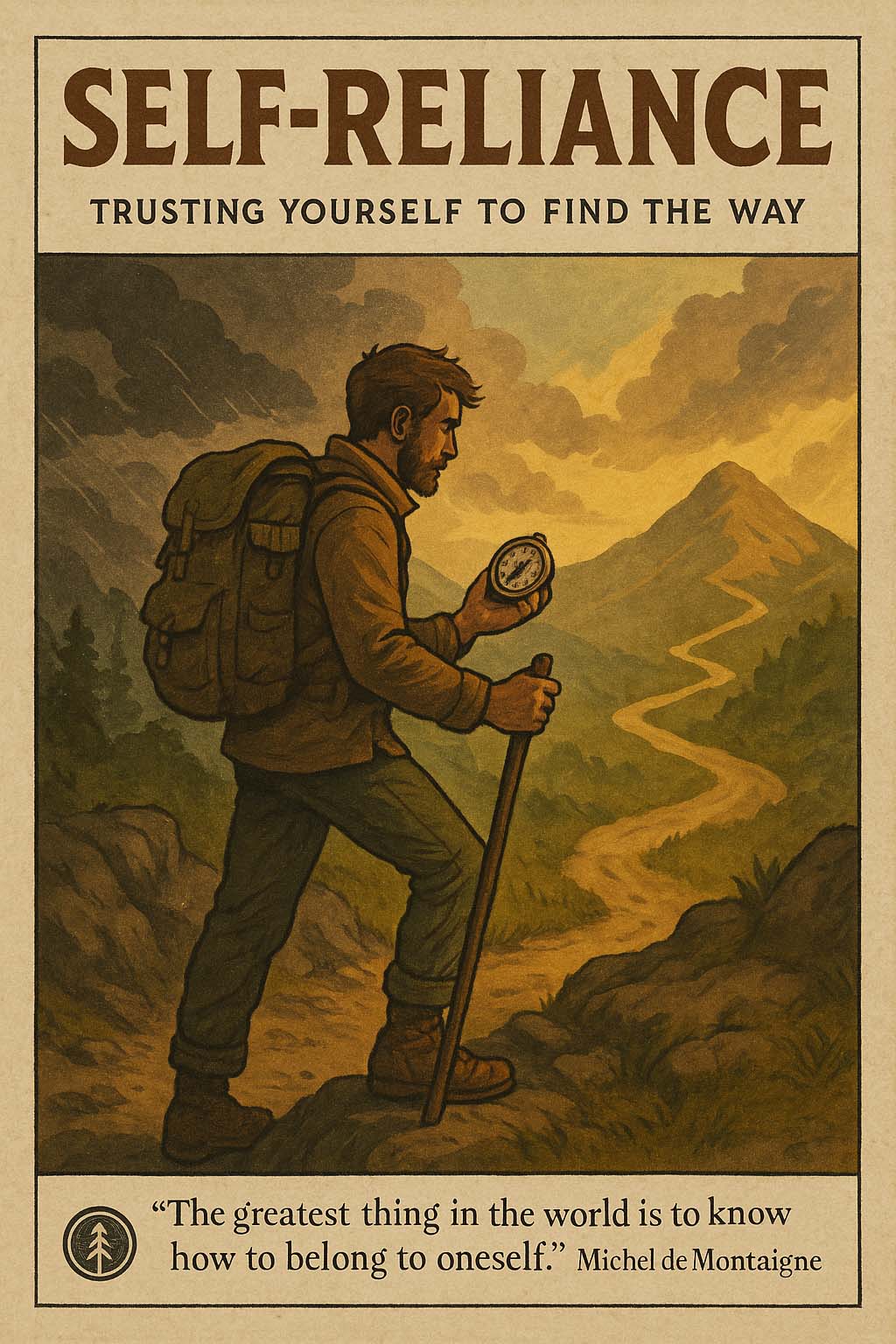
🧭 SELF-RELIANCE
“The greatest thing in the world is to know how to belong to oneself.” – Michel de Montaigne
Self-reliance is the steady belief that you can figure this out. That even when things feel uncertain, even when others let you down, you have the capacity to respond with resourcefulness. In the ADHD terrain, where self-doubt often lingers and independence can be patchy, self-reliance is a quiet reclamation of trust in yourself.
For ADHDers, it’s common to feel overly dependent on reminders, reassurance, or external structure. But true self-reliance doesn’t mean doing it all alone. It means recognising that you can adapt, recover, and find your way back, even if you sometimes need support. It’s not about isolation—it’s about inner steadiness.
Living this value means taking responsibility for your path, without shame or perfectionism. It’s building tools that help you manage life’s demands—not because you have to prove your worth, but because you believe in your own ability to grow. It’s saying, “Even if I don’t know how yet, I trust that I can learn.”
Self-reliance is also about choosing your values over external validation. It’s building a life that reflects your truths—not just surviving the expectations of others.
🧭 The HOPE Trail Map
- Helps or Harms: Am I leaning on others in ways that support growth—or out of fear I can’t cope alone?
- Own My Values: I want to be someone who takes myself seriously enough to trust my instincts, effort, and choices.
- People and Pursuits: Who respects my independence while still standing beside me? What pursuits reinforce my competence and courage?
- Enact and Evaluate: Today, I’ll complete one task—large or small—entirely on my own, and acknowledge my ability to do so.
⚠️ Trail Challenges
- Past criticism may weaken belief in one’s own capability.
- Executive function issues may lead to dependency on others for basic life tasks.
- The desire to be “self-reliant” can tip into shame-driven isolation.
🪧 Trail Markers: Small Steps Toward Self-Reliance
- Identify one problem and brainstorm three potential solutions—before asking for help.
- Choose one habit to manage independently for the next week.
- Reflect on a time you solved something on your own—and what strengths you used.
🔥 Campfire Questions for Reflection
- What does self-reliance mean to me, beyond cultural expectations?
- Where in my life do I already rely on myself—and not give myself credit for it?
- How can I build more trust in my ability to rise, adapt, and continue?
Self-reliance doesn’t mean you never need help. It means you know that—even in the wild—you’ve got the skills to find your way home.
